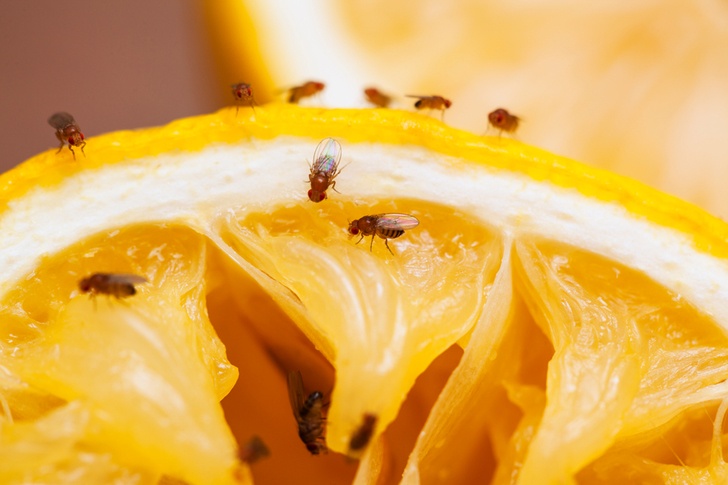
Undaunted by window screens and strangely immune to exuberant bouts of swatting, fruit flies become a real nuisance as soon as the warmer weather arrives.
Often found en masse, forming a living cloud around a fresh bowl of fruit, these tiny annoyances will quickly grow their numbers when not dealt with post haste.
Know Thy Enemy
The common fruit fly (Drosophila melanogaster) is either brought into the home as larvae on the surface of store-bought produce, or, because they are so teeny, they find their way inside in the spaces between the woven mesh of screens.
They are attracted to anything moist and fermented, laying up to 500 eggs at a time on ripened fruits, rotting food, sink drains, empty bottles, and damp rags.
The lifespan of the fruit fly is about seven days, though the warmer the weather, the longer they live.
5 Ways To Prevent Fruit Flies
Follow these tips to help prevent a fruit fly infestation from happening in the first place and then continue below to see six of the best methods for getting rid of fruit flies that have already set in:
1. Wash Your Fruits & Vegetables
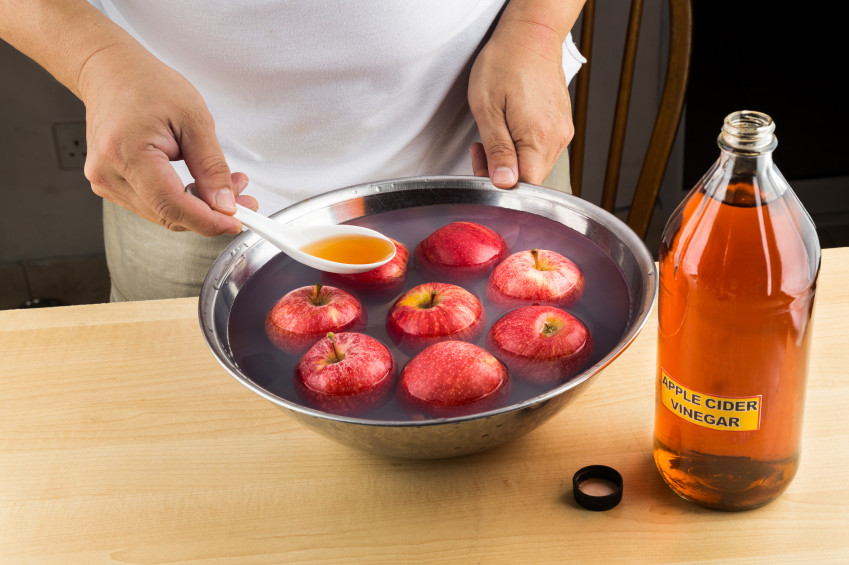
As a standard practice, thoroughly washing store-bought produce as soon as you get home will not only remove harmful pesticides from your food, but will also clear away fruit fly eggs that may be hiding on the flesh of your fruits and veggies.
Once cleaned, don’t place them back in the bag you received them in at the store – this will risk recontaminating your produce once again.
2. Keep Your Kitchen Clean
Since fruit flies flourish around fermenting foods and moist organics, the best course for prevention is to avoid providing them a hospitable environment in which to feed and breed.
This means not leaving dirty dishes, soiled dish cloths, and bits of food in the sink.
Be vigilant and wipe up spilled drinks and food crumbs on your counter, and around your stove, dishwasher, and fridge.
Rinse out food and beverage containers before placing them in the recycling bin – especially wine and beer bottles. Wipe down the seals of your fridge, all the way around the door.
Put a few spoonfuls of baking soda into your sink’s drain and then pour white vinegar on top to clear out the plumbing pipes.
3. Freeze Your Kitchen Compost
Although you can keep your kitchen compost bucket out in the open during the cooler months without worrying about pests, during the summer you can protect your rotting kitchen scraps from fruit flies by simply placing your organic refuse in a deep freeze.
Accumulate organics in a small container or zippered plastic bag and place it in the freezer between dumpings into your outdoor compost heap.
Added bonus: freezing actually aids decomposition by breaking down the cellular walls of foodstuff, which will speed up the composting process once you add it to the pile.
4. Cover Your Fruit Bowls
While setting out a big bowl of fresh fruit on your counter is an excellent way to keep healthy snacks within reach, it has the distinct disadvantage of drawing in these tiny pests.
Keep fruit flies away by fitting some plastic wrap over the bowl, or better yet, use reusable silicone lids or a cake dome.
5. Don’t Overwater Your Plants
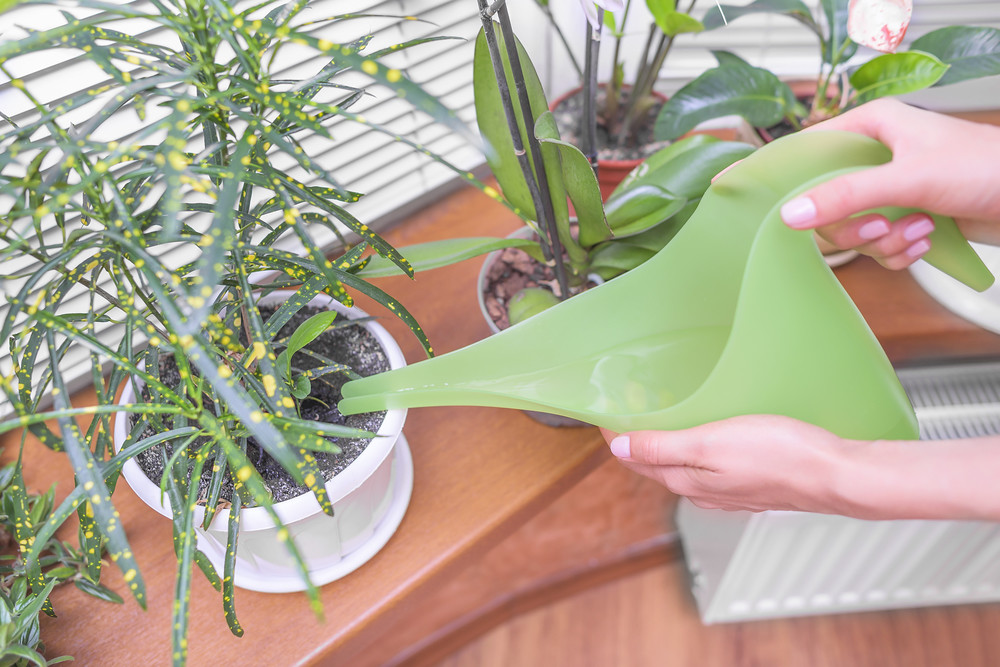
Being a little overzealous and watering your houseplants too much can bring a quick end to your indoor greenery, but soil that is constantly moist also provides a breeding ground for fruit flies as well.
Make sure soil dries out between waterings (stick your finger into the first inch of soil to determine whether it’s dry) and don’t provide them with standing water – always empty and clean the planter saucer once the water runs through the growing medium.
6 Ways To Get Rid Of Fruit Flies
For those times when you might have absent-mindedly left the kitchen compost bucket out overnight, take these proactive measures to quickly disperse those fruit fly clouds:
6. Apple Cider Vinegar Trap
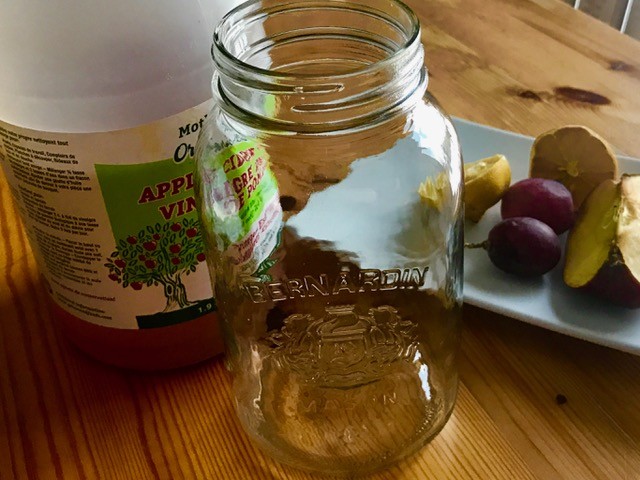
Among the myriad uses for apple cider vinegar, it also makes for a fantastic fruit fly bait.
Place some apple cider vinegar in a bowl close to where the fruit flies are congregating, place a couple pieces of over ripened fruit within, cover with plastic wrap, secure it with a rubber band, and use a toothpick to poke a few small holes in the wrap.
They will be lured by the scent of apple cider vinegar, and once inside the bowl, they will be unable to escape.
Clean the bowl and replace the apple cider vinegar every day.
For a more detailed description with photos of how to make a fruit fly trap with apple cider vinegar, take a look at our step-by-step guide here.
7. Use a Diffuser

Add a few drops of citronella, cedarwood, and cinnamon oil (which you can get from here) to your essential oil diffuser and watch as the fruit fly swarm immediately high tails it out of there.
These essential oils are detested by fruit flies and the aroma will have them vacating the area.
Need an essential oil diffuser? Check out our article where we review five of the best.
If you don’t already own an essential oil diffuser and wouldn’t like to invest in one, then you could instead add a drop or two of essential oil to a cotton pad and place in area where fruit flies are present.
8. Lavender
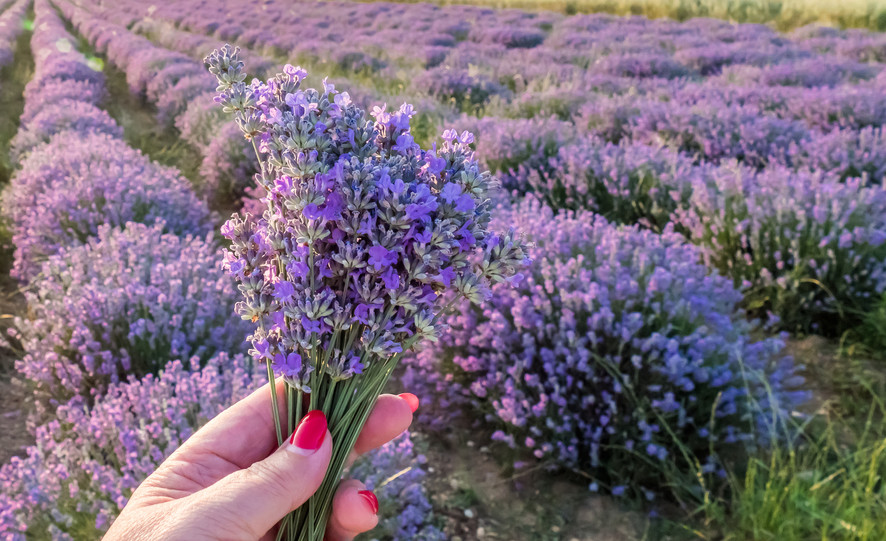
An incredibly useful plant, lavender smells wonderful to us – but to the fruit fly, the scent is abhorrent.
Grow some fresh lavender on your kitchen windowsill or place several drops of lavender essential oil on a sponge and place it next to where the fruit flies tend to flit about.
Read Next: 20 Magical Ways Lavender Essential Oil Will Change Your Life
9. Cloves
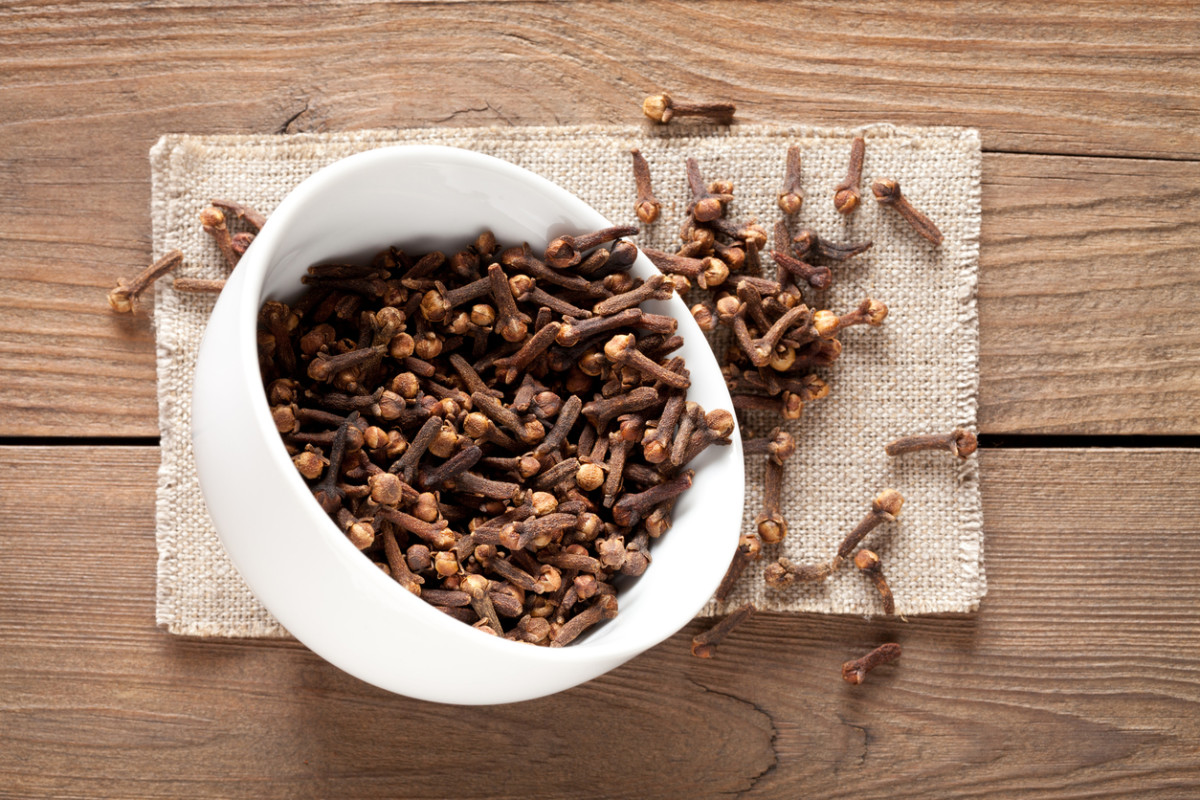
Another natural repellent, cloves will deter most types of flies – including the fruit fly.
Make a pomander with a whole apple, orange, or lemon and stick at least 30 cloves into the flesh of the fruit.
Alternatively, whip up some fresh potpourri or add a few drops of clove essential oil to your homemade or natural cleaning products.
10. Rue
With a long history as a medicinal and culinary herb, common rue (Ruta graveolens) is bitter in taste and should only be eaten in small quantities.
Though the plant itself has a strong, sweet, and slightly musty scent, which is pleasant enough for us humans, to insects (and cats), rue smells terrible and is an effective way to keep pests at bay when grown indoors or in the garden.
11. Lemongrass
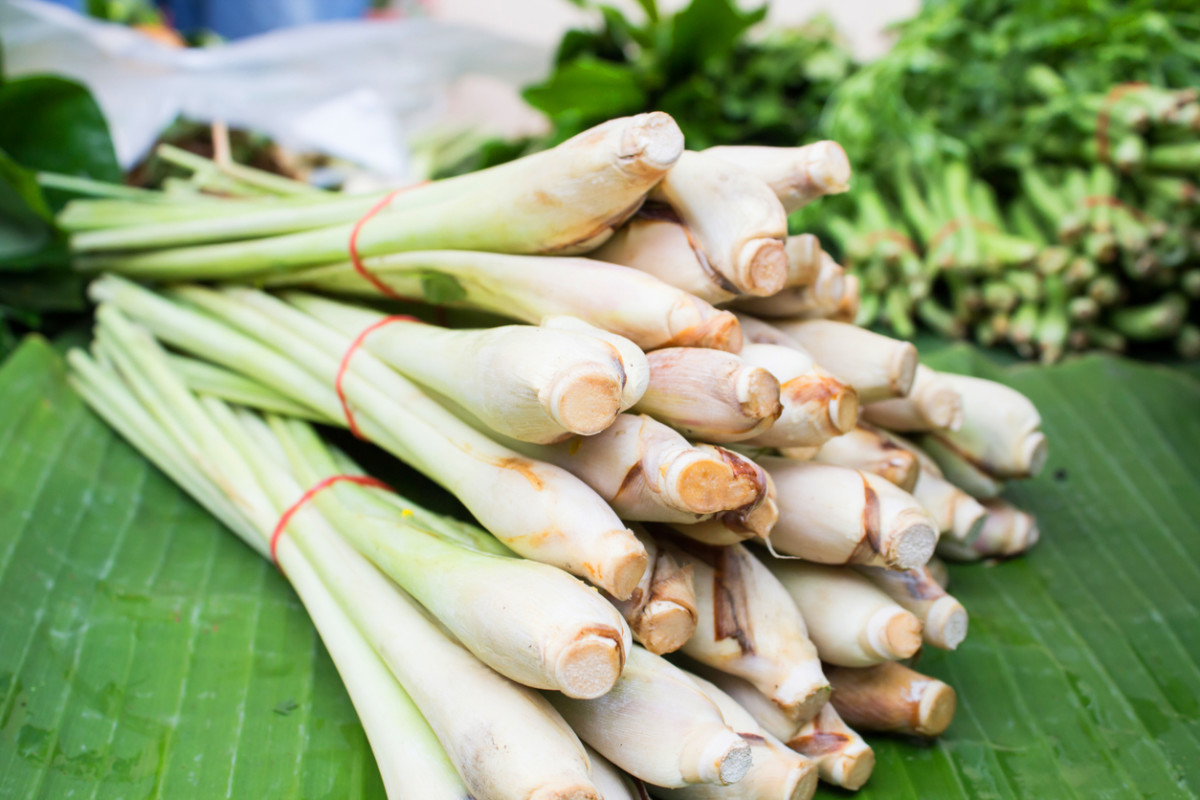
Make a lemongrass spray by combining four cups of water with 10 drops of lemongrass essential oil, shake well, and transfer to a glass spray bottle.
Spritz generously on surfaces where you see fruit flies – countertops, cabinets, walls, etc.
This natural solution not only smells great, and when you use the lemongrass spray every day, it should prevent them from coming back. Though this will not kill them (just gently evict them), you can use undiluted rubbing alcohol instead if you want to give them an instant death.
